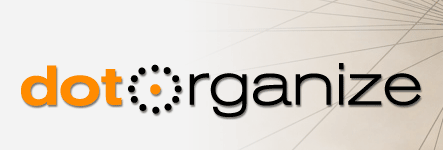Key Concepts
This report contains both concepts and technical definitions that may be unfamiliar. For ease of reading, we have listed definitions of key overarching concepts in this section. More technical definitions, such as “Web 2.0” and “Application Service Provider,” are listed here.
Many of the terms below carry conflicting or disputed meanings. The definitions provided here are intended as guidelines within the context of this report.
- Social Change Organization: For the purposes of this report, we refer to social change organizations as those that promote progressive social change. These groups may endeavor to serve or give voice to an underrepresented constituency or community, or they may advocate on behalf of a specific issue. Although social change organizations may work on large or small budgets, a majority of the social change groups represented in this report are small, under-resourced, and sparsely staffed.Some examples of groups that fall outside our working definition of social change organizations are trade groups, professional associations, social service providers without advocacy or organizing initiatives, charitable foundations, and groups advancing politically conservative agendas.
- Organizing: This term can mean different things to different communities. Organizing can refer to the process of base building and strengthening social movements by working with people in affected communities to define their objectives, and co-creating a strategy to achieve those objectives. Other organizing models focus more on engaging people outside of affected communities to support an issue or campaign. Yes, there is a tension between the two. Organizing activities, no matter the tactical model, can include education, outreach, power mapping, advocacy, civil disobedience, long-term relationship building, and targeting decision makers to affect policy.
- Online Organizing: We define “online organizing” as the use of Internet communication technologies to support the full spectrum of organizing. In practice, use of this term often assumes a clean split between offline organizing and online organizing techniques. It is our view that they work in tandem. Online technology has certainly added many tools to organizer toolboxes, such as communicating to extended networks of people through email, providing materials for download via a website, or targeting mass communications to a legislator. However, these means often lead to the same ends intended by an offline organizing strategy. If online tactics aren’t closely linked with offline tactics, in service of a stated strategy, they’re probably not that effective. Legitimate outcomes cannot, by definition, be limited to the “online world.”
- Organizer: An individual active in advancing an organizational agenda utilizing a range of on- and offline organizing techniques. Organizers prioritize building networks and relationships, cultivating a long-term power base, and activating a community or constituency around a particular issue. Organizers may also focus on broader communications efforts, developing systemic analyses, and providing information to the general public.
- Information Management: The practice of tracking and handling information acquired from one or many sources in a way that optimizes access by all who have a share in that information.
- Information/Systems Integration: The seamless movement of information from one application to another. Many of the applications in use today were developed using arcane and proprietary technologies, thus creating information silos within organizations. When different systems can’t integrate effectively, they create information bottlenecks that result in data duplication and increased data entry.










October 3rd, 2006 at 2:29 pm PST
We are near the end of a process of moving to a new Plone-based content management system web site.
We work for a really under-resourced group — human rights and alternatives for people in the mental health system.
Our board definitely does NOT want a myspace type approach… On the other hand we need to do as much as we can so that our members can network with one another directly without going through an under-resourced office. But we’re not experts on the technology.
Anyway, the main thing right now is for us to get the basic Plone site up… but we would like to tap into ways to help our members network with one another without having to be experts at the technology.
thanks,
David
David Oaks, Director, MindFreedom International